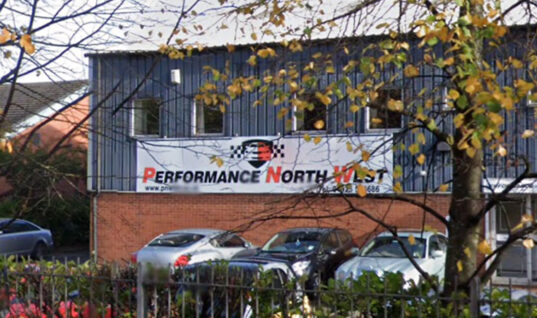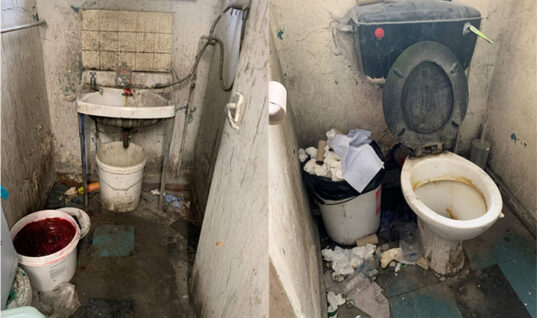It is now illegal to burn waste oil in your small waste oil burner (SWOB) unless you obtain a new permit under Schedule 13A of the Environmental Permitting Regulations 2010.
The change, which came into force on April 6, followed an amendment to reduce the emission of air pollutants from the use of waste oil as a fuel.
After a meeting with DEFRA minister, Rory Stewart MP last month, the Independent Garage Association’s (IGA) Stuart James told IGA members that: “To turn this legislation around we need to prove that emissions created from burning waste oil are equal or lower than when burning diesel, which is proving to be a challenge.”
While you can no longer burn waste oil in your SWOB, he did say that the meeting was “very engaging and is open to future discussions.”![]()
DEFRA
Dave Garratt, chief executive at the Garage Equipment Association (GEA), who was also in attendance to challenge the change, told GW that DEFRA “had actually put some thought into this”.
He said that it is the quality of the waste oil being used to fuel SWOBs that’s the issue for DEFRA and that it’s up to the aftermarket to provide the evidence to prove that SWOBS do not emit harmful emissions.
“You can use recycled oil as a fuel because it guarantees quality but the costs of this make it ineffective.
“The trouble is,” he added, “the waste oil from one vehicle may be very different to that from another.
“If we could find a way of filtering the oil before burning it, we might have a solution.”![]()
Increased costs
In the meantime, a £3,218 application fee and annual £1,384 fee for permits has angered independents, some of whom have taken to GW to express their concerns.
George Duszczak of VM Diesel Specialist in Chesterfield said: “When the person thought that taxing oil burners in this way to reduce pollution, did they take into consideration the amount of waste that is burned from workshops, farms and other industrial premises?
“It’s a fact that you have to pay to dispose of industrial waste.
“I think we pay enough in taxes already without paying disposal fees.”
Another GW reader, Matthew Collier, like many other independents, argues that the latest changes arent about the environment at all.
He said: “We currently use a waste oil burner but it will be too expensive to run on clean oil or pay for the application and annual fee so it will be made redundant now and the lads in the workshop will have even more difficult conditions to carry an already hard and difficult job.”![]()
‘Tarred with the same brush’
Mathew Ellis said: “I have a two-year old waste oil heater which cost £4000 plus vat, it is serviced once a year and I have a certificate to prove this.
“When it is running there is no smoke whatsoever the flue burns as clean as my home oil boiler.
“Across the estate is the old type oil burner that you start up with diesel and a reg, when this is running it looks like a steam engine, it seems to me we are all getting tarred with the same brush.”
Speaking to GW earlier this year, a DEFRA spokesperson said: “[Independent garages] could continue to use their SWOB but using non-waste fuel instead of waste oil.
“Or, if they want to continue to burn waste oil, they will need to obtain the necessary permit in accordance with Schedule 13A of the Environmental Permitting Regulations, meeting the requirements of the Industrial Emissions Directive (IED) for the operation of waste incineration and waste co-incineration plants.
“Alternatively they can switch to using a different heating system, like a gas boiler.”
Have you stopped using waste oil now that the new rules have come into place or have you paid the increased fees? Leave your comments below.








Lee Heywood
It is interesting that DEFRA seem open to discuss evidence obtained by the trade that SWOB’s do not produce any more pollution than a diesel heater. This suggests to me that they have not carried out extensive testing on the matter already. Have they really pushed this law through without already obtaining results to support their suspicions? I want to see this evidence.
Lee Heywood
It is interesting that DEFRA seem open to discuss evidence obtained by the trade that SWOB’s do not produce any more pollution than a diesel heater. This suggests to me that they have not carried out extensive testing on the matter already. Have they really pushed this law through without already obtaining results to support their suspicions? I want to see this evidence.
mark
i have a oil fire waste oil heater it heats my place great no smoke at all out of it but a place just along from us has a wood burning thing they burn every thing in it you can smell it some days / taste it make us pay a ffe to run these heaters but price it a bit more afordable
mark
i have a oil fire waste oil heater it heats my place great no smoke at all out of it but a place just along from us has a wood burning thing they burn every thing in it you can smell it some days / taste it make us pay a ffe to run these heaters but price it a bit more afordable
Alex Feigenbaumn
We have a waste oil heater that cost us a lot of money and it also burns without smoke of smell. We service it according to manufacturers spec and it works well. Which bright spark at Defra decided to tax the small independent workshop? No one has come to check or test my heater to see how good or bad it is. Yesterday I was following a small lorry going up an incline and it was far more smokey than my heater ever is, and our heater is only used 3-4 months of the year during working hours.
Someone needs to use their common sense and have these SWOB checked to see if they conform.
I’ve paid my annual Licence fee to my local authority, they have not refunded me the portion I can use.
What about all the workshops that never bothered to register that know nothing of all this.
As usual it’s a complete mess.
Alex Feigenbaumn
We have a waste oil heater that cost us a lot of money and it also burns without smoke of smell. We service it according to manufacturers spec and it works well. Which bright spark at Defra decided to tax the small independent workshop? No one has come to check or test my heater to see how good or bad it is. Yesterday I was following a small lorry going up an incline and it was far more smokey than my heater ever is, and our heater is only used 3-4 months of the year during working hours.
Someone needs to use their common sense and have these SWOB checked to see if they conform.
I’ve paid my annual Licence fee to my local authority, they have not refunded me the portion I can use.
What about all the workshops that never bothered to register that know nothing of all this.
As usual it’s a complete mess.
Jules
We have converted a garage workshop with a 60kW waste oil burner to run on Kerosene. The cost to do this is not prohibitive but yes it is a cost, but at around half the annual license fee, which in theory the license fee will no longer apply. So that saving per year will be used to pay for the kerosene used for heating.
Yes you will have to put in a storage tank for Kerosene but this needn’t be an excessive expense except in difficult circumstances such as making the tank site a safe location.
These costs would be similar to those born by any business putting in space heating, that didn’t have access to waste oil.
I can’t get in to the merits of burning Waste oil as opposed to shipping it off site to be recycled and the added cost to do so. But I can say that the POC’s (products of combustion) left within the burner from burning waste oil far exceed the waste from burning Kerosene.
I have seen the clean flue gasses as mentioned by previous posters, but what the eye sees and the analyser sees are two entirely different things. It would be akin to passing a cars emission test for MOT purposes by eye. You wouldn’t do it. Readings I have seen show much higher for example CO2 and CO % than those from burning Kerosene, despite recent servicing. And the other issue is dioxins and carcinogens that are not recorded, but equally are not visible.
Kerosene should burn 10-20% more efficiently than waste oil so a consumption of a burner running 70l per day would be an equivalent of 60l per day of kerosene around 31p (Thursday 12th May 2016 is 30.71 pence per litre (inc. VAT))
So £18 day to run. However there are small savings from not having to run the compressor as much nor the electric preheater for the waste oil to thin it. Around a £1.5- £2 saving in electrical energy, we could say £16/ day less VAT reclaimed at 5%
What this will mean is that the garage owner will need to look at ways to save energy in the form of insulation and closing of open bay doors etc. As we draftproof and insulate our homes and offices to reduce our energy footprint so the same applies to workshops. It can be done it just carries a upfront cost, and changes to how we do things.
Even so 1200l of kerosene on the above combustion would cost £372 inc Vat if the workshop is heated everyday for 5 days for 4 months that would use £1500 of heating oil, which is approximately the cost of the annual waste oil burner license that should not now be required.
These are the figures I have interpreted and happy to debate the finer points and open to constructive discussion. I’m not the implementer of the Legislation but simply trying to enable a reasonable/ viable solution.
We all have to pay for heating homes and offices and the so-called free heating from waste oil comes at the cost of an annual license and discharge of POC’s unsuitable for the environment. Kerosene is a solid fuel and CO2 polluting it’s just a more socially acceptable form at the moment. Incidentally Kerosene itself is now at least 10% biofuel, so it’s getting greener..
Jules
We have converted a garage workshop with a 60kW waste oil burner to run on Kerosene. The cost to do this is not prohibitive but yes it is a cost, but at around half the annual license fee, which in theory the license fee will no longer apply. So that saving per year will be used to pay for the kerosene used for heating.
Yes you will have to put in a storage tank for Kerosene but this needn’t be an excessive expense except in difficult circumstances such as making the tank site a safe location.
These costs would be similar to those born by any business putting in space heating, that didn’t have access to waste oil.
I can’t get in to the merits of burning Waste oil as opposed to shipping it off site to be recycled and the added cost to do so. But I can say that the POC’s (products of combustion) left within the burner from burning waste oil far exceed the waste from burning Kerosene.
I have seen the clean flue gasses as mentioned by previous posters, but what the eye sees and the analyser sees are two entirely different things. It would be akin to passing a cars emission test for MOT purposes by eye. You wouldn’t do it. Readings I have seen show much higher for example CO2 and CO % than those from burning Kerosene, despite recent servicing. And the other issue is dioxins and carcinogens that are not recorded, but equally are not visible.
Kerosene should burn 10-20% more efficiently than waste oil so a consumption of a burner running 70l per day would be an equivalent of 60l per day of kerosene around 31p (Thursday 12th May 2016 is 30.71 pence per litre (inc. VAT))
So £18 day to run. However there are small savings from not having to run the compressor as much nor the electric preheater for the waste oil to thin it. Around a £1.5- £2 saving in electrical energy, we could say £16/ day less VAT reclaimed at 5%
What this will mean is that the garage owner will need to look at ways to save energy in the form of insulation and closing of open bay doors etc. As we draftproof and insulate our homes and offices to reduce our energy footprint so the same applies to workshops. It can be done it just carries a upfront cost, and changes to how we do things.
Even so 1200l of kerosene on the above combustion would cost £372 inc Vat if the workshop is heated everyday for 5 days for 4 months that would use £1500 of heating oil, which is approximately the cost of the annual waste oil burner license that should not now be required.
These are the figures I have interpreted and happy to debate the finer points and open to constructive discussion. I’m not the implementer of the Legislation but simply trying to enable a reasonable/ viable solution.
We all have to pay for heating homes and offices and the so-called free heating from waste oil comes at the cost of an annual license and discharge of POC’s unsuitable for the environment. Kerosene is a solid fuel and CO2 polluting it’s just a more socially acceptable form at the moment. Incidentally Kerosene itself is now at least 10% biofuel, so it’s getting greener..